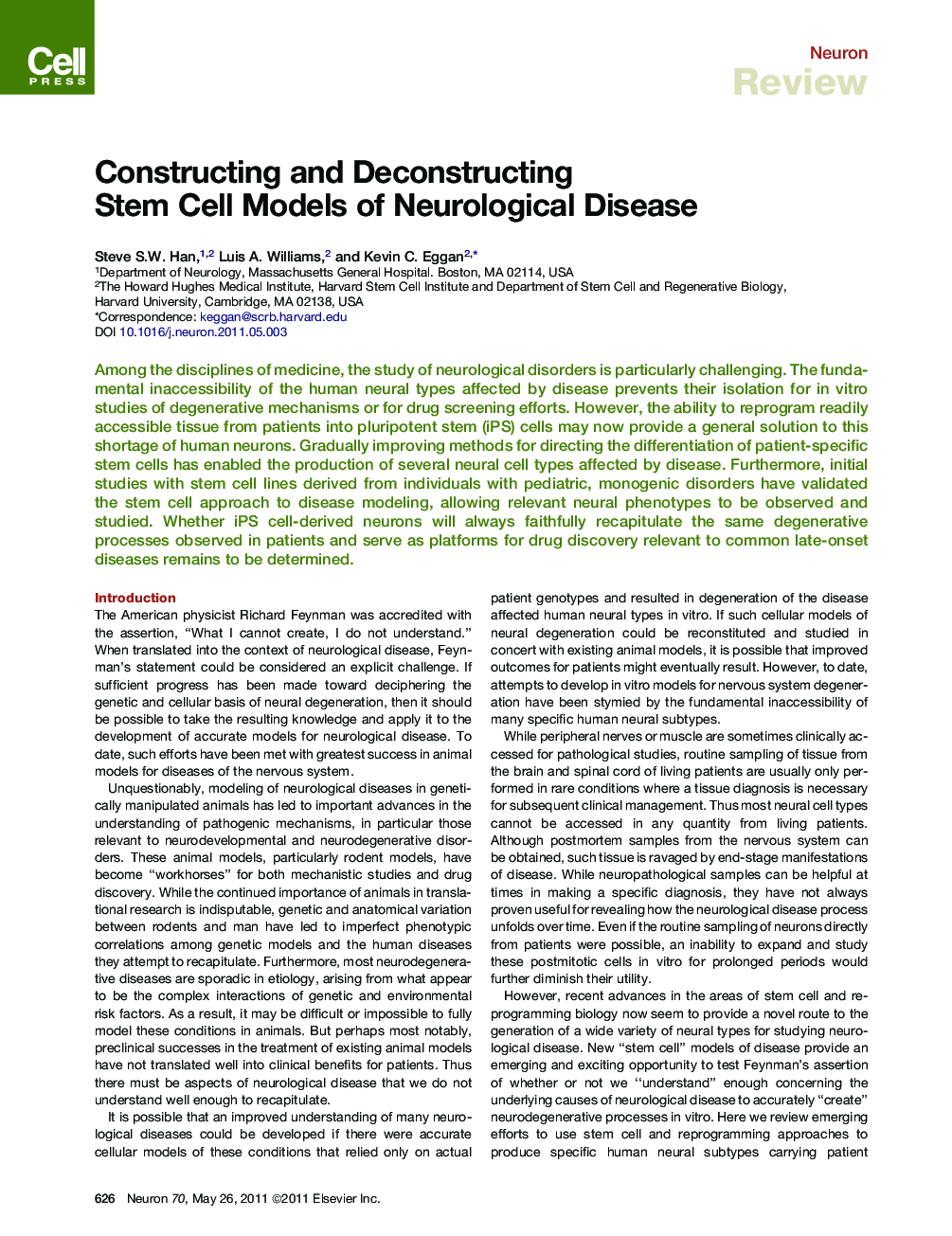| Article ID | Journal | Published Year | Pages | File Type |
|---|---|---|---|---|
| 4321759 | Neuron | 2011 | 19 Pages |
Among the disciplines of medicine, the study of neurological disorders is particularly challenging. The fundamental inaccessibility of the human neural types affected by disease prevents their isolation for in vitro studies of degenerative mechanisms or for drug screening efforts. However, the ability to reprogram readily accessible tissue from patients into pluripotent stem (iPS) cells may now provide a general solution to this shortage of human neurons. Gradually improving methods for directing the differentiation of patient-specific stem cells has enabled the production of several neural cell types affected by disease. Furthermore, initial studies with stem cell lines derived from individuals with pediatric, monogenic disorders have validated the stem cell approach to disease modeling, allowing relevant neural phenotypes to be observed and studied. Whether iPS cell-derived neurons will always faithfully recapitulate the same degenerative processes observed in patients and serve as platforms for drug discovery relevant to common late-onset diseases remains to be determined.
